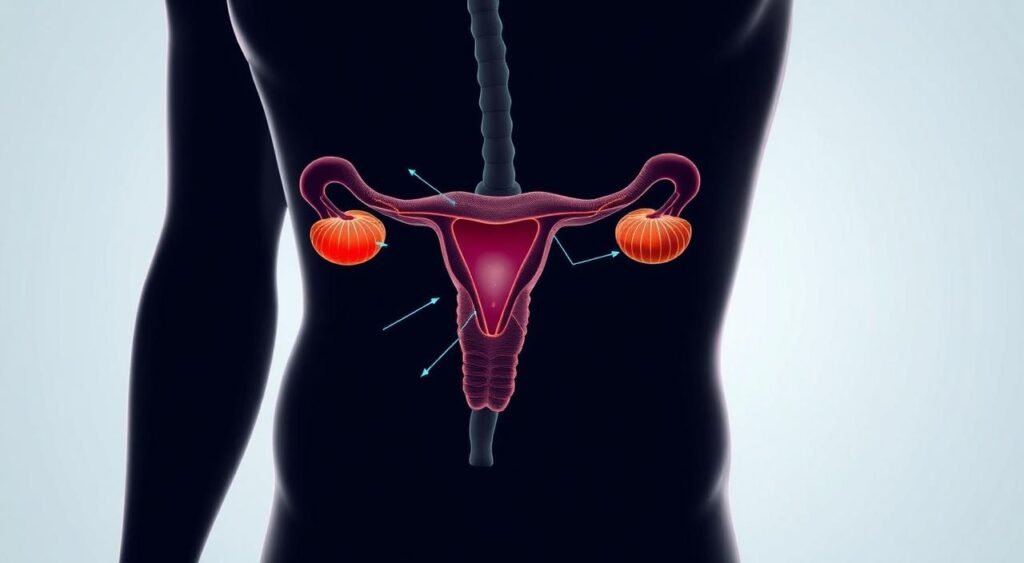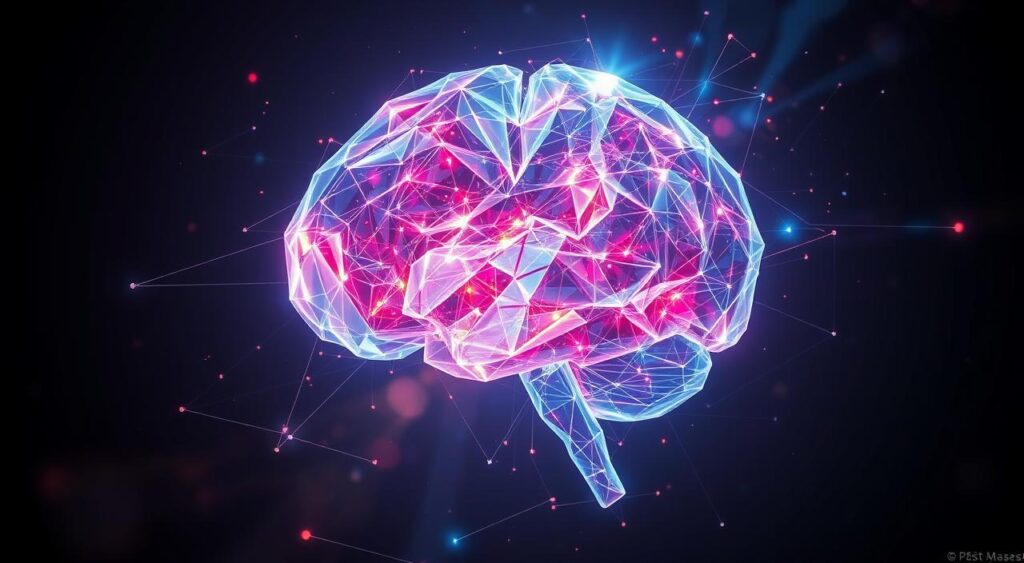Understand erectile disorder and find effective solutions. Learn about the causes, symptoms, and treatment options for this common condition.
Did you know that more men deal with erectile dysfunction? This issue affects their sexual health and overall happiness. It’s important to know what causes and symptoms erectile dysfunction has. This knowledge helps find relief and improve sexual health.

Erectile disorder is complex, caused by physical and psychological factors. It’s key to tackle the root causes for lasting relief. By understanding erectile dysfunction, men can manage their sexual health and feel better overall.
Key Takeaways
- Erectile dysfunction affects millions of men in the United States
- Understanding the causes and symptoms of erectile dysfunction is crucial in finding effective relief
- Erectile dysfunction can have a significant impact on a man’s quality of life and sexual health
- Physical and psychological factors can contribute to erectile dysfunction
- Addressing the underlying causes of erectile dysfunction is essential in finding effective relief
- Improving sexual health and overall well-being is possible with the right treatment and lifestyle changes
Understanding Erectile Disorder
Erectile dysfunction affects millions of men worldwide. It’s important to know about it. In the United States, about 30 million men deal with this issue. This shows why we need to talk more about erectile dysfunction.
This condition can really affect a person’s life. It impacts not just the man but also his partner and their relationship. But, it’s good to know that erectile dysfunction can be treated. Getting help can greatly improve one’s life.
What Defines Erectile Disorder
Erectile disorder means a man can’t get or keep an erection for sex. Many things can cause this, like physical or mental issues. Finding out why is key to fixing it.
How Common is the Condition
Erectile disorder is a big health issue. We need to spread the word about it. Knowing about erectile dysfunction can help people deal with it better. This can make their lives better.
Impact on Quality of Life
Erectile disorder can really hurt a person’s life. It affects not just the man but also his partner and their relationship. But, there’s hope. Getting medical help can really help improve life.
Common Signs and Symptoms
It’s important to know the symptoms of erectile dysfunction. These include trouble getting or keeping an erection, or feeling less interested in sex. Other signs might be early or late ejaculation, or pain when having sex.
These symptoms can be mild or severe. Some men might only notice small issues, while others face bigger problems. Getting medical help is key to figuring out what’s wrong and finding a solution.
Here are some common signs and symptoms of erectile dysfunction:
- Difficulty achieving an erection
- Maintaining an erection
- Decrease in sexual desire
- Premature ejaculation
- Delayed ejaculation
- Pain during intercourse
Knowing these symptoms and signs is the first step to getting help. It’s a way for men to tackle their erectile dysfunction.
Physical Causes of Erectile Disorder
Erectile disorder can stem from several physical reasons. These include cardiovascular, hormonal, and neurological factors. It’s important to understand these causes for effective treatment.
Physical causes can be complex. They often involve a mix of factors.
Some key physical causes include:
- Cardiovascular conditions, such as high blood pressure and atherosclerosis, which can damage blood vessels and restrict blood flow to the penis
- Hormonal imbalances, including low testosterone levels, which can affect libido and erectile function
- Neurological factors, such as nerve damage and multiple sclerosis, which can affect the nerves responsible for erection
Certain medications, like antidepressants and blood pressure meds, can also cause erectile dysfunction. It’s crucial to talk to a healthcare professional to find the cause and get a treatment plan.
Addressing the physical causes of erectile disorder can help symptoms. Understanding these causes is the first step towards effective treatment and better sexual health.
| Physical Cause | Description |
|---|---|
| Cardiovascular conditions | Damage to blood vessels and restricted blood flow to the penis |
| Hormonal imbalances | Low testosterone levels affecting libido and erectile function |
| Neurological factors | Nerve damage and conditions affecting the nerves responsible for erection |
Psychological Factors and Mental Health
Psychological factors greatly affect erectile disorder, with anxiety being a big factor. Anxiety can come from many places, like relationship issues, feeling bad about oneself, or past traumas. It’s key to tackle these issues to beat erectile disorder.
Mental health experts can teach people how to cope, talk better, and feel better overall. By focusing on mental health, people can handle their condition better and live a fuller life.
- Seeking professional help from a mental health expert
- Practicing stress-reducing techniques, such as meditation or deep breathing
- Improving communication with partners to build trust and intimacy
Recognizing the role of mental health in erectile disorder is a big step towards healing. It’s important to talk about this with care and understanding. Remember, psychological factors are just as important as physical ones.

In the end, dealing with mental health is key to managing erectile disorder. By doing this, people can take back control of their sexual health and feel better overall.
Risk Factors and Prevention
Knowing the risk factors and prevention strategies for Erectile Disorder is key for good sexual health. As men age, their risk of erectile dysfunction goes up. This is due to several age-related factors.
A healthy can greatly lower the risk of Erectile Disorder. This means eating well, staying active, and avoiding bad habits like smoking and drinking too much alcohol.
Age-Related Considerations
Age is a big risk factor for Erectile Disorder. Older men often face damaged blood vessels and nerves. This can cause erectile dysfunction.
Lifestyle Factors
Some lifestyle choices can up the risk of Erectile Disorder. These include:
- Smoking
- Obesity
- Lack of exercise
- Excessive alcohol consumption
By living a healthy lifestyle and avoiding these risks, men can lower their chance of Erectile Disorder.
Medical Conditions
Some medical issues, like diabetes, high blood pressure, and high cholesterol, raise the risk of Erectile Disorder. Managing these conditions through prevention and treatment can help lower the risk of erectile dysfunction.
| Risk Factor | Description |
|---|---|
| Age | Increased risk of erectile dysfunction with age |
| Lifestyle Factors | Smoking, obesity, lack of exercise, excessive alcohol consumption |
| Medical Conditions | Diabetes, high blood pressure, high cholesterol |
By knowing the risk factors and taking steps towards prevention, men can lower their risk of Erectile Disorder. This helps them keep a healthy sexual lifestyle.
Diagnostic Process and Evaluation
The first step in diagnosing erectile disorder is a physical exam and a look at your medical history. Your doctor might also run some testing. They check for things like high blood pressure or diabetes, which can affect your diagnosis.
Next, they’ll ask about your medical history. This helps find out if any medicines or lifestyle choices might be causing your problem. They might also do blood and urine tests to check for other health issues. This whole process is key to figuring out what’s causing your erectile disorder and finding the right treatment.
Some common steps in the diagnostic process include:
- Physical examination
- Medical history
- Laboratory tests, such as blood tests and urine tests
Getting a proper diagnosis and treatment plan is crucial. By going through a detailed testing and evaluation, you can start working towards better sexual health and well-being.
| Diagnostic Step | Description |
|---|---|
| Physical Examination | A healthcare provider performs a physical exam to check for underlying medical conditions. |
| Medical History | A healthcare provider reviews the individual’s medical history to identify potential causes of erectile dysfunction. |
| Laboratory Tests | Laboratory tests, such as blood tests and urine tests, are ordered to rule out underlying medical conditions. |
Medical Treatment Options
For those dealing with erectile disorder, many medical treatments are available. These options can help reduce symptoms and improve life quality. It’s key to talk to a healthcare provider about these options to find the best one.
Common treatments include oral meds like sildenafil, tadalafil, and vardenafil. These increase blood flow to the penis for an erection. Injectable treatments, like alprostadil, can also be used. It’s important to follow a healthcare provider’s advice with these treatments.
Oral Medications
Oral meds are a top choice for erectile disorder. They are often the first treatment and can work well. These meds boost blood flow to the penis for an erection. Always take them as your healthcare provider advises for safety and best results.
Injectable Treatments
Injectable treatments are another option for erectile disorder. They involve injecting medication, like alprostadil, into the penis for an erection. It’s crucial to follow your healthcare provider’s guidance for safety and effectiveness.
Other than oral and injectable treatments, there are more options. Surgical solutions, like penile implants, might be considered for severe cases. Always discuss all options with a healthcare provider to choose the best one.
Natural Remedies and Lifestyle Changes
Managing Erectile Disorder often requires a mix of medical treatments and lifestyle changes. Natural remedies and lifestyle adjustments can help ease symptoms and boost health. A balanced diet, regular exercise, and stress management are key to a holistic approach.
Adopting natural remedies and lifestyle changes can greatly improve one’s life. These changes can reduce the need for medication and lower the risk of erectile dysfunction. Eating a healthy diet, full of fruits, vegetables, and whole grains, is vital. Regular physical activity, like walking or jogging, also helps improve blood flow and heart health.
Dietary Modifications
A healthy diet is crucial for overall health and reducing erectile dysfunction risk. Foods high in sugar and saturated fats can worsen the condition. On the other hand, a diet rich in fruits, vegetables, and whole grains can help. Key foods to include are:
- Leafy green vegetables, such as spinach and kale
- Berries, such as blueberries and strawberries
- Fatty fish, such as salmon and tuna
- Whole grains, such as brown rice and quinoa
Exercise Recommendations
Regular exercise is vital for overall health and reducing erectile dysfunction risk. It improves blood flow, reduces stress, and boosts mood. Key exercises include:
- Cardiovascular exercises, such as walking or jogging
- Strength training exercises, such as weightlifting or bodyweight exercises
- Flexibility exercises, such as yoga or stretching

Stress Management Techniques
Stress and anxiety can worsen erectile dysfunction, making stress management crucial. Key techniques include:
- Meditation and mindfulness
- Deep breathing exercises
- Yoga and tai chi
By adding these natural remedies and lifestyle changes to daily life, individuals can lower their risk of erectile dysfunction. A healthy diet, regular exercise, and stress management can greatly improve quality of life. These aspects of health are essential to prioritize.
When to Seek Professional Help
Getting help is key when dealing with Erectile Disorder. If your symptoms don’t go away or get worse, see a healthcare provider. They can figure out what’s causing it and suggest treatments.
There are clear signs you need professional help. These include not being able to get an erection, pain during sex, or trouble keeping it up. If you’re facing these issues, it’s time to see a doctor.
In some cases, Erectile Disorder hints at a bigger health issue. Getting professional help can uncover and treat these problems. This can prevent more serious issues and boost your health. Taking action early can help you take back control of your sexual health.
- Persistent or recurring erectile dysfunction
- Pain or discomfort during sex
- Difficulty maintaining an erection
Remember, asking for help is the first step to beating Erectile Disorder. With the right diagnosis and care, you can get your sexual health back on track.
Supporting Your Partner Through Treatment
When a partner is getting treatment for erectile disorder, it’s key to be supportive. This means open communication to get each other’s needs and feelings. A supportive partner can greatly help in the recovery by offering emotional support and encouragement.
Talking openly is crucial for a good recovery. Regular, honest talks about the condition, its effects, and treatment are important. This way, both partners can understand each other better and find solutions together.
Communication Strategies
- Encourage open and honest discussions about feelings and needs
- Listen actively and provide emotional support
- Avoid being critical or judgmental
Emotional Support Tips
Emotional support is vital for a partner dealing with erectile dysfunction. Being empathetic, understanding, and encouraging is key. A supportive partner can make their partner feel less alone and more confident in managing the condition.
Being a supportive partner and offering emotional support helps overcome erectile disorder challenges. This means keeping a strong, supportive relationship, which is key for a successful recovery.
| Support Strategies | Benefits |
|---|---|
| Open communication | Helps to understand each other’s needs and feelings |
| Emotional support | Helps to cope with the emotional aspects of erectile dysfunction |
| Encouragement | Helps to build confidence and self-esteem |
Conclusion: Taking Control of Your Sexual Health
It’s important for people to take charge of their sexual health to beat Erectile Disorder. Knowing the causes, spotting symptoms, and looking into treatments is key. Getting professional advice, living a healthy life, and supporting your partner are all crucial steps.
Keeping a healthy lifestyle, like eating right and exercising, helps a lot. Also, managing stress and talking openly with your partner can help with the emotional side of Erectile Disorder. By taking control, you can beat Erectile Disorder and have a better sex life.
In short, controlling your sexual health is key to a happy sex life. Understanding its value and acting on it can help you beat Erectile Disorder and feel better overall. This journey needs patience, support, and a commitment to better living.
FAQ
Q: What is Erectile Disorder?
A: Erectile Disorder, also known as erectile dysfunction, is a common issue. It affects many men. It makes it hard to get or keep an erection for sex.
Q: What are the symptoms of Erectile Disorder?
A: Symptoms include trouble getting or keeping an erection. You might also feel less sexual desire. Other signs are premature or delayed ejaculation, or pain during sex.
Q: What are the physical causes of Erectile Disorder?
A: Physical causes are complex. They include heart problems like high blood pressure and heart disease. Hormonal imbalances and some medications also play a role.
Q: Can psychological factors contribute to Erectile Disorder?
A: Yes, mental health matters. Anxiety, depression, and stress can cause it. So can relationship issues, low self-esteem, and past traumas.
Q: What are the risk factors for Erectile Disorder?
A: Risk factors include age and lifestyle choices. Smoking, being overweight, and not exercising enough are harmful. Medical conditions like diabetes and high blood pressure also increase risk.
Q: How is Erectile Disorder diagnosed?
A: Diagnosis involves a physical check-up and medical history. Blood and urine tests are also used. They help find underlying health issues.
Q: What are the treatment options for Erectile Disorder?
A: Treatments include oral drugs like sildenafil and tadalafil. There are also injectable treatments and surgical options like penile implants.
Q: Are there natural remedies for Erectile Disorder?
A: Yes, natural remedies help. Eating more fruits and veggies, exercising, and managing stress are key. Techniques like meditation and yoga can also help.
Q: When should I seek professional help for Erectile Disorder?
A: Seek help if symptoms don’t get better or get worse. A doctor can find the cause and suggest treatments.
Q: How can I support my partner through Erectile Disorder treatment?
A: Supporting your partner is crucial. Talk openly and honestly. Show empathy and encouragement. This helps them feel supported during treatment.
